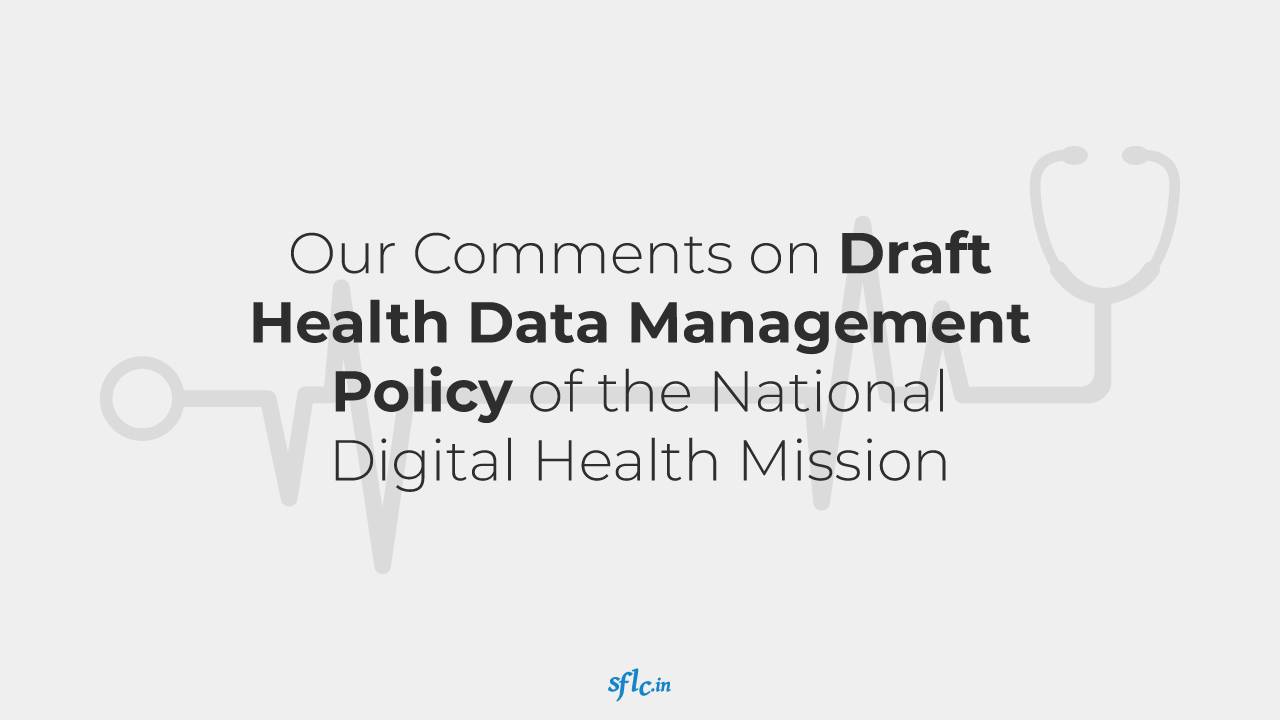Our Comments on Draft Health Data Management Policy of the National Digital Health Mission
The Ministry of Health and Family Welfare (hereinafter “the MoHFW”) released the draft Health Data Management Policy (hereinafter “the Policy or the draft Policy”) under the National Digital Health Mission (hereinafter “the NDHM”) for stakeholder consultation on August 26, 2020. The initial period of consultation for the draft Policy was till September 5, 2020 which was later extended to September 10, 2020 and eventually to September 21, 2020. In a participatory democracy, important frameworks like this one must be finalized only after providing reasonable time to stakeholders for sharing their inputs and holding transparent consultations on the framework. While we laud the Government for bringing out the draft Health Data Management Policy, and elaborating upon rights of data principals, data fiduciaries, voluntary nature of the health ID, we believe that there must be utmost transparency on consultations undertaken and on the names of those who were involved in drafting of the Report.
The draft Policy resembles the Personal Data Protection Bill, 2019, which is currently under consideration by the Joint Parliamentary Committee, however it fails to explain its interaction with the Personal Data Protection Bill or the Puttaswamy I judgment. The draft Policy, in itself, appears to be a patchwork to avoid legal challenges to the Policy/ Framework for the lack of a specific legislation governing it. We strongly recommend that the Policy should be finalised only after the Personal Data Protection Bill has been passed by the Parliament. Creation of a standalone horizontal policy in the absence of a data protection framework might create more problems than it could solve. A policy does not have same force of law as a legislation which undergoes parliamentary scrutiny.
While we do commend the Government for clearly stating the voluntary nature of the health ID, we would express caution about the possibility of voluntary-mandatory nature of health ID. We have already seen such example in Chandigarh where Post Graduate Institute of Medical Education and Research (PGIMER) had issued a circular asking all doctors, other staff and their family members to get a digital ID mandatorily. Eventually, the PGIMER withdrew this circular stating that the term “mandatory” was an error which has been corrected.
Read our comments on the Draft Health Data Management Policy here:




